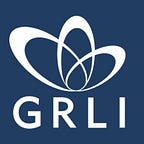Teaching Responsible Leadership, Moral Imagination and Stakeholder Dilemma Reconciliation:
Case of Hindalco Industries’ UAIL Refinery in Odisha, India
A teaching package for the GRLI community: Video, Summary & Journal article
By Nicola Pless, Professor, Professor of Management and Chair of Positive Business at the University of South Australia Business School and Director of the Center for Business Ethics and Responsible Leadership (BERL). She is a GRLI Independent Associate and a GRLI Guardian.
A recent conversation between John North, GRLI Executive Director and Professor Nicola Pless focused on dilemma reconciliation in stakeholder conflicts as a key element for Global Responsibility and Responsible Leadership. She offers insights into her recent Journal of Business Ethics article entitled “Responsible Leadership and the Reflective CEO”, which provides practical insights for top executives on how to handle stakeholder dilemmas and conflicts in a responsible way.
John North: In our conversation, we talked about the need of top executives for moral imagination and practical guidance to handle complex stakeholder situations responsibly. Could you provide us with an example of relevant and responsible research on top executive leadership?
Nicola Pless: My research is focused on producing research that is relevant for business practice and provides guidance for moral decision making and dilemma reconciliation. For research on globally responsible leadership it is important to include the problems and challenges that leaders face when operating in developing and emerging countries. In my recent paper, I worked with a researcher and practitioner (the former CEO for Hindalco Industries) in India. The CEO provided us with access to a conflict dilemma situation which serves as the basis for ethical reflection.
The article is entitled “Responsible Leadership and the reflective CEO: Resolving stakeholder conflict by imagining what could be done” and is published open-access in the Journal of Business Ethics.
The content of the article has been identified as being relevant for crisis and conflict management and was recommended by Springer Nature as a resource in the COVID-19 pandemic to the World Health Organization. It was also selected for the Nature Public Health Emergency Collection by the US government, US National Library of Medicine.
John North: What is the article about?
Nicola Pless: The article addresses an ethical dilemma that frequently occurs in business operations that affect different stakeholders in society. Namely, the topic of regional development through industrialization versus the land use of indigenous communities. Failing to respond to such dilemmas can cause many problems ranging from harming the environment and local communities to far-reaching repercussions for business, including decade-long violent conflicts, reputation damage, financial losses, destruction of trust and shareholder value and even company downfall.
The article discusses and contrasts traditional actions with novel/innovative alternatives to approach the dilemma situation and develops concrete approaches for tackling the different facets of the problem in an ethical way, by responding to the interests of different stakeholders, and particularly considering the perspectives of the indigenous local communities.
The following video provides further insights into the article:
John North: For which target group is this article relevant?
Nicola Pless: First of all, for executives in industry: The approach of “reconciling stakeholder conflict through moral imagination” is relevant for all managers and executives that engage with stakeholders and need to make the right decisions in stakeholder conflict situations. It is of particular relevance for the extractive industries since their operations by nature negatively affect the environment and ultimately the lives and interests of stakeholders in the local communities in which they operate. The article provides practical and ethical “how-to-do” knowledge on responsible leadership for managers and executives that can be immediately used.
Second, it is relevant for teaching at universities and business schools: The article and case content are relevant for students in management (e.g., Master, MBA, executive education) and engineering. It was successfully piloted in 2021 in an MBA core course (BUSS5389, Responsible Leadership) at the University of South Australia.
John North: How do you use the article and case in teaching?
Nicola Pless: The article is of direct relevance for students in building capacity for ethical reflection, moral decision making, stakeholder conflict resolution, and the development of responsible leadership.
The article incorporates a case which can be used as a stand-alone teaching case. The discussion in the article provides the necessary content for discussion leadership. I discussed the case with students in light of different ethical theories and frameworks as well as responsible leadership orientations. I also guided students in the practice of ethical reflection which they then applied to the case. This supported them in developing their own ethical resolution approaches, which they submitted as a written assignment.
Journal Article
The 2021 Journal of Business Ethics article titled, “Responsible Leadership and the reflective CEO: Resolving stakeholder conflict by imagining what could be done” is a case based article on a greenfield project of Hindalco Industries. The open access article (link above) is co-authored by Nicola Pless, Atri Sengupta, Melissa Wheeler and Thomas Maak.
Professor Nicola M. Pless is Professor of Management, holds the Chair of Positive Business at the University of South Australia and is Director of the Center for Business Ethics and Responsible Leadership (BERL). She is a GRLI Independent Associate and a GRLI Guardian.
